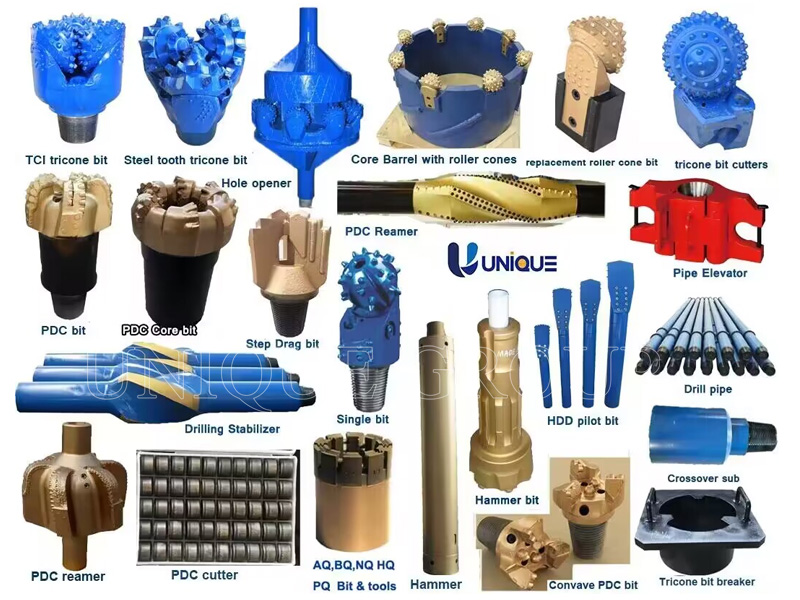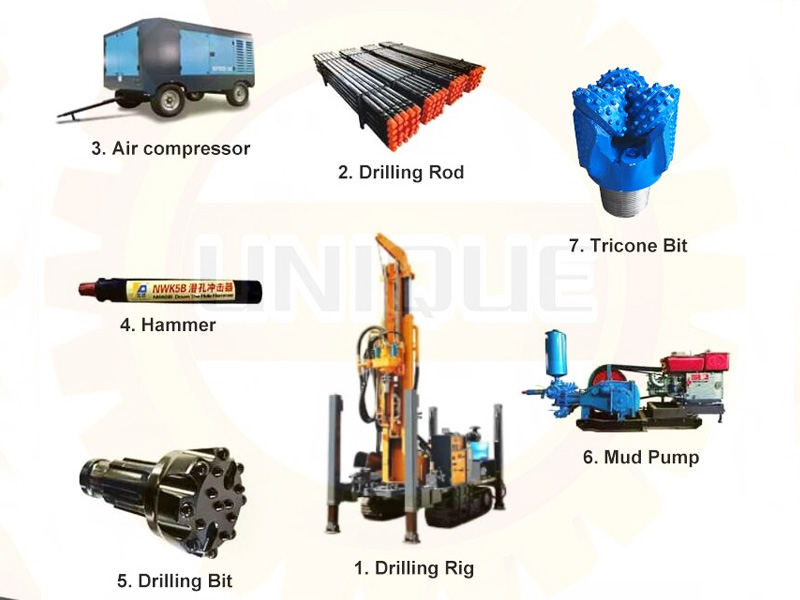Water well drilling rig – choose the right drill bit
Different types of water well drilling rigs require different types of drill bits, so when choosing a drill bit, it is necessary to make a reasonable choice according to the specific working conditions. The following are some key points to pay attention to when choosing a drill bit:

1. Drilling in soft rock formations:
In soft rock formations with good drillability, the drilling speed is fast, requiring the drill bit to have a large slag removal capacity and good slag removal effect. At this time, it is recommended to choose a four-wing drill bit to improve the slag removal effect and ensure smooth drilling. The four-wing drill bit can work quickly in soft rock formations, reduce drilling resistance, and increase drilling speed.
2. Drilling in hard rock formations:
In hard rock formations, due to the high strength of the rock, each column tooth of the drill bit needs to bear a large load. At this time, a DTH impact drill bit (DTH: Down The Hole) should be selected. The DTH impact drill bit uses the impact force generated by air pressure or hydraulic pressure to effectively penetrate hard rock formations, and is particularly suitable for drilling hard rock and hard formations. It has a large impact force and high drilling efficiency, and can maintain a high drilling speed in extremely hard formations.
3. Drilling in clay-containing rock formations:
When drilling in rocks containing clay, the slag discharge holes are prone to clogging due to the loose clay. To avoid clogging, you can choose a side slag discharge drill bit, which helps to better remove the debris generated during drilling. In addition, scraper bits can also perform well in this environment, especially in formations with more mud and clay layers. It can effectively clean the borehole wall and prevent the hole wall from collapsing.
4. Drilling in rock with good toughness:
For rocks with good toughness, the drill bit needs to have good cutting ability when drilling. In this case, the wedge tooth drill bit can better adapt to the toughness of the rock formation and provide a more stable drilling effect. The wedge tooth drill bit can effectively penetrate the tough rock with its sharp cutting edge, ensuring that the drill bit maintains long-term durability.
5. Drilling in complex formations:
In complex formations, such as alternating soft and hard layers, or when the formation is unstable, you can choose a three-cone drill bit. The three-cone drill bit can provide better stability and uniform cutting effect, and has good adaptability to unstable formations.

Therefore, when choosing a drill bit, it must be reasonably selected according to the specific geological conditions. If you are interested in purchasing a water well drilling rig and its matching drill bits, you are welcome to come to our company for a field visit. We will demonstrate the use of the equipment on site to ensure that you understand the operation of the product. We are committed to providing high-quality products and services to ensure that quality issues are not a problem.

